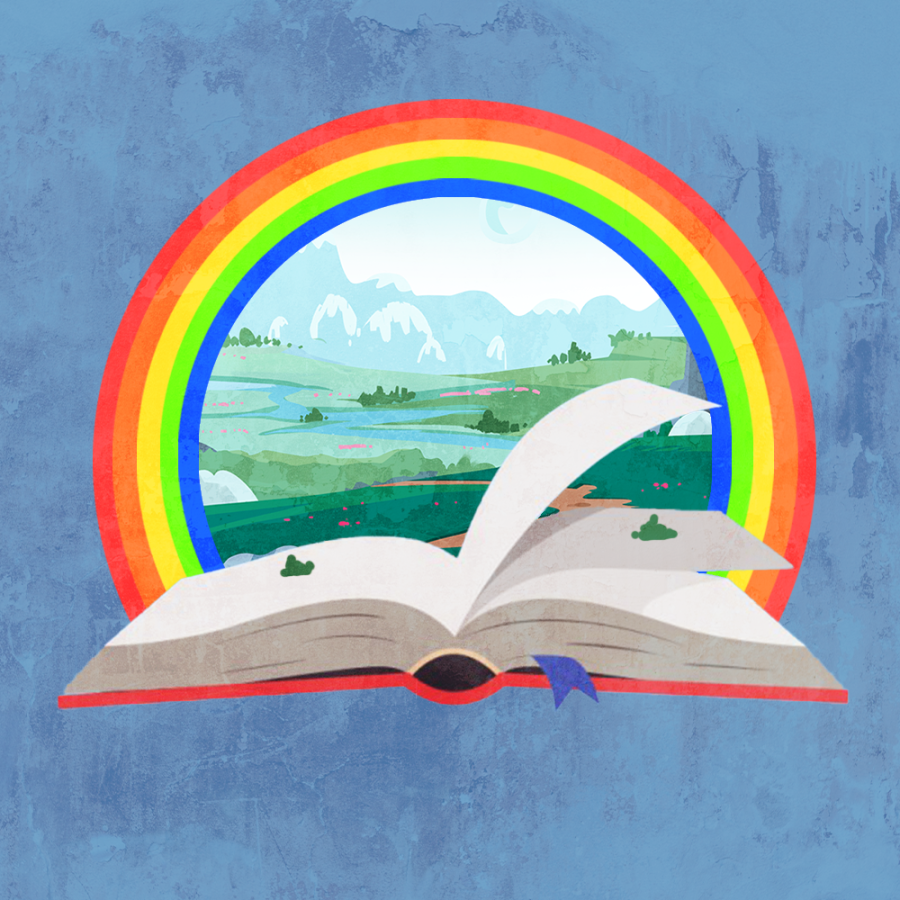The power of poetry
October 12, 2021
Since the pandemic, many people have been experiencing spikes in depression and anxiety. Mental Health America, a non-profit organization dedicated to increasing mental health awareness, screened over 800,000 people for anxiety and depression from January to September 2020. People are suffering from depression and anxiety now more than ever: especially youth. Our culture has been forced to redefine what we consider “normal.” Because of this, people are turning to new coping mechanisms to help ease the pain, and believe it or not, poetry is one of them.
Now, I know what you’re thinking: how can poetry help people feel better in times like these? Arguably, it’s common knowledge that reading fiction can increase empathy, but what’s so special about poetry — how can it make people feel less alone? Well, over the past few decades, scientific studies have proven that poetry has a beneficial impact in managing pain, coping with stress and improving personal wellbeing. Dating back to the nineteenth century, poetry has been used for healing purposes. Numerous studies have proven that poetry can even help people deal with unexpected or stress-inducing situations: like a global pandemic.
Let’s dive a bit deeper, and contemplate some specific ways in which poetry can help mental health.
Poetry can be a form of comfort. By reading poetry, we can get the escapism we crave, transporting us out of our own world and into someone else’s. The repetition and rhyme often found in poetry can be soothing, and trying to uncover the meaning of a poem can give us a necessary break from our inner monologue.
Poetry can also be a shared experience. Poems are often quite vulnerable in nature; as the saying goes, misery loves company. There’s something quite comforting in the knowledge that we’re not alone — that our pain is shared with someone else. Poetry often reveals that there is universality in the human experience.
Lastly, poetry can be a platform for change and advocacy. Many poems creatively tackle topics that are a bit taboo or not often talked about in other platforms. Depression, anxiety, abuse, poverty: all of these topics can be found in a poetic form, empowering both the poet and the reader.
Despite the positive attributes, poetry can be quite intimidating. Personally, it took me quite a while to feel comfortable with not only reading poetry, but writing it. Now, poetry is something I actively enjoy and seek out regularly. If you find yourself apprehensive about stepping into the world of poetry, here are some tips to guide you through.
Don’t approach poetry like it’s school. When we learn about poetry in academic contexts, we closely study stanzas, form, meter, and the like. But if you’re trying to read poetry for pleasure, the goal is obviously not to ace a quiz. So don’t worry about the mechanics, just listen to the words as they float off the page.
Similarly, try reading out loud. Again, no pressure: you’re not doing it for a grade. But we must remember that poetry was actually an oral tradition before anything else. Reading poetry out loud — savoring every word and syllable — can make the poetry more understandable and, let’s be honest, more fun!
Read poetry from a variety of authors and genres. Expand your horizons by delving into poetry from different authors, different time periods and different cultures. Don’t just go for the classics like Robert Frost and Walt Whitman. Try something new.
To put it lightly, life is tough: but it’s important to remember that we’re not alone. The next time you’re feeling hopeless, try diving into the works of a poet. Who knows — you might be inspired to write some poetry of your own!






